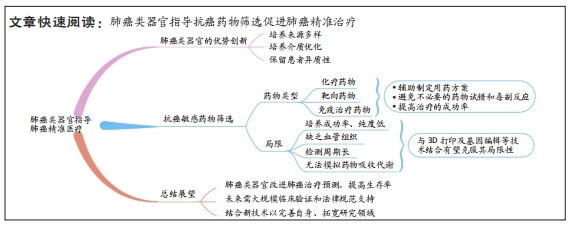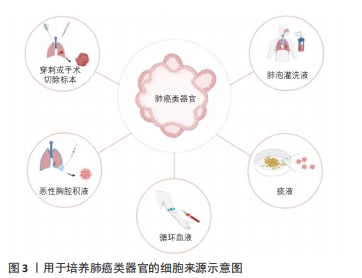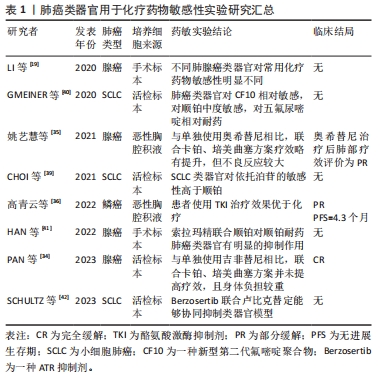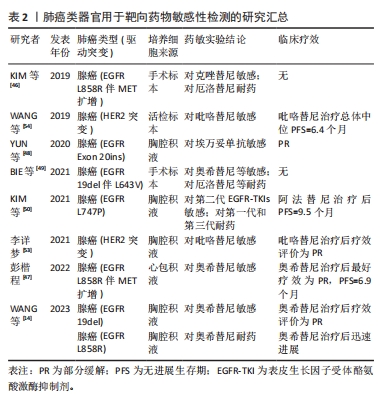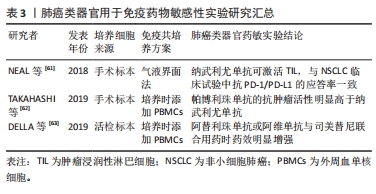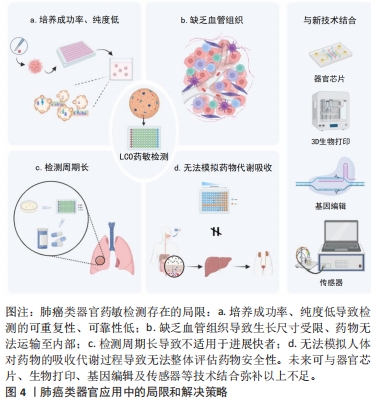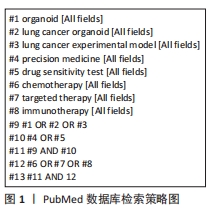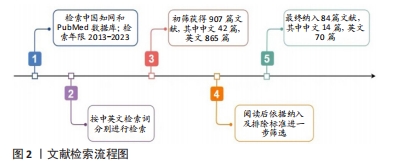[1] SIEGEL RL, MILLER KD, WAGLE NS, et al. Cancer statistics, 2023. CA Cancer J Clin. 2023;73(1):17-48.
[2] CAO M, LI H, SUN D, et al. Current cancer burden in China: epidemiology, etiology, and prevention. Cancer Biol Med. 2022;19(8):1121-1138.
[3] WANG DC, WANG W, ZHU B, et al. Lung cancer heterogeneity and new strategies for drug therapy. Annu Rev Pharmacol Toxicol. 2018;58:531-546.
[4] BYRNE AT, ALFÉREZ DG, AMANT F, et al. Interrogating open issues in cancer precision medicine with patient-derived xenografts. Nat Rev Cancer. 2017;17(4): 254-268.
[5] JIN Y, LIU M, SA R, et al. Mouse models of thyroid cancer: Bridging pathogenesis and novel therapeutics. Cancer Lett. 2020;469:35-53.
[6] LI M, IZPISUA BELMONTE JC. Organoids-preclinical models of human disease. N Engl J Med. 2019;380(6):569-579.
[7] 贾梓淇, 梁乃新, 李单青. 类器官在肺癌精准治疗中的应用[J].中国肺癌杂志,2020,23(7):615-620.
[8] ROSSI G, MANFRIN A, LUTOLF MP. Progress and potential in organoid research. Nat Rev Genet. 2018;19(11):671-687.
[9] LANCASTER MA, KNOBLICH JA. Organogenesis in a dish: modeling development and disease using organoid technologies. Science. 2014;345(6194):1247125.
[10] MONDRINOS MJ, JONES PL, FINCK CM, et al. Engineering de novo assembly of fetal pulmonary organoids. Tissue Eng Part A. 2014;20(21-22):2892-2907.
[11] KENNY HA, LAL-NAG M, WHITE EA, et al. Quantitative high throughput screening using a primary human three-dimensional organotypic culture predicts in vivo efficacy. Nat Commun. 2015;6:6220.
[12] DROST J, CLEVERS H. Organoids in cancer research. Nat Rev Cancer. 2018;18(7): 407-418.
[13] MAZZOCCHI A, DEVARASETTY M, HERBERG S, et al. Pleural effusion aspirate for use in 3D lung cancer modeling and chemotherapy screening. ACS Biomater Sci Eng. 2019;5(4):1937-1943.
[14] WANG H, ZHANG C, PENG K, et al. Using patient-derived organoids to predict locally advanced or metastatic lung cancer tumor response: a real-world study. Cell Rep Med. 2023;4(2):100911.
[15] 周鲁林,张文,段新春,等.3D培养体系富集外周血中的循环肿瘤干细胞的研究[J].中国肿瘤,2019,28(5):381-386.
[16] 李国良.患者来源肿瘤类器官的细胞与分子生物学特征及其临床意义[D].北京:北京协和医学院,2022.
[17] SACHS N, PAPASPYROPOULOS A, ZOMER-VAN OD, et al. Long-term expanding human airway organoids for disease modeling. EMBO J. 2019;38(4):e100300.
[18] EBISUDANI T, HAMAMOTO J, TOGASAKI K, et al. Genotype-phenotype mapping of a patient-derived lung cancer organoid biobank identifies NKX2-1-defined Wnt dependency in lung adenocarcinoma. Cell Rep. 2023;42(3):112212.
[19] LI Z, QIAN Y, LI W, et al. Human lung adenocarcinoma-derived organoid models for drug screening. iScience. 2020;23(8):101411.
[20] 潘跃天.肺癌类器官建模成功率及体外敏感性检测相关分析[D].石家庄:河北医科大学,2020.
[21] LI Z, YU L, CHEN D, et al. Protocol for generation of lung adenocarcinoma organoids from clinical samples. STAR Protoc. 2021;2(1):100239.
[22] AISENBREY EA, MURPHY WL. Synthetic alternatives to matrigel. Nat Rev Mater. 2020;5(7):539-551.
[23] MONLEÓN-GUINOT I, MILIAN L, MARTÍNEZ-VALLEJO P, et al. Morphological characterization of human lung cancer organoids cultured in type I collagen hydrogels: a histological approach. Int J Mol Sci. 2023;24(12):10131.
[24] GAN Z, QIN X, LIU H, et al. Recent advances in defined hydrogels in organoid research. Bioact Mater. 2023;28:386-401.
[25] URCIUOLO A, GIOBBE GG, DONG Y, et al. Hydrogel-in-hydrogel live bioprinting for guidance and control of organoids and organotypic cultures. Nat Commun. 2023;14(1):3128.
[26] CHOI YM, LEE H, ANN M, et al. 3D bioprinted vascularized lung cancer organoid models with underlying disease capable of more precise drug evaluation. Biofabrication. 2023. doi: 10.1088/1758-5090/acd95f.
[27] CHEN JH, CHU XP, ZHANG JT, et al. Genomic characteristics and drug screening among organoids derived from non-small cell lung cancer patients. Thorac Cancer. 2020;11(8):2279-2290.
[28] MATEO J, STEUTEN L, AFTIMOS P, et al. Delivering precision oncology to patients with cancer. Nat Med. 2022;28(4):658-665.
[29] MA H, ZHU Y, ZHOU R, et al. Lung cancer organoids, a promising model still with long way to go. Crit Rev Oncol Hematol. 2022;171:103610.
[30] ZENG X, MA Q, LI X, et al. Patient-derived organoids of lung cancer based on organoids-on-a-chip: enhancing clinical and translational applications. Front Bioeng Biotechnol. 2023;11:1205157.
[31] WANG J, LI X, CHEN H. Organoid models in lung regeneration and cancer. Cancer Lett. 2020;475:129-135.
[32] VLACHOGIANNIS G, HEDAYAT S, VATSIOU A, et al. Patient-derived organoids model treatment response of metastatic gastrointestinal cancers. Science. 2018; 359(6378):920-926.
[33] 王树滨,高静,朱宇,等.类器官药物敏感性检测指导肿瘤精准治疗临床应用专家共识(2022年版)[J].中国癌症防治杂志,2022,14(3):234-239.
[34] PAN Y, CUI H, SONG Y. Organoid drug screening report for a non-small cell lung cancer patient with EGFR gene mutation negativity: a case report and review of the literature. Front Oncol. 2023;13:1109274.
[35] 姚艺慧.探索第一、二代序贯第三代EGFR-TKI治疗EGFR突变晚期非小细胞肺癌的适宜人群[D].广州:南方医科大学,2021.
[36] 高青云,林晓程,陈雨晴,等.驱动基因阳性肺鳞癌的疗效及肿瘤免疫微环境探索分析[J].循证医学,2022,22(2):105-118.
[37] LI Y F, GAO Y, LIANG BW, et al. Patient-derived organoids of non-small cells lung cancer and their application for drug screening. Neoplasma. 2020;67(2):430-437.
[38] ZUGAZAGOITIA J, PAZ-ARES L. Extensive-stage small-cell lung cancer: first-line and second-line treatment options. J Clin Oncol. 2022;40(6):671-680.
[39] CHOI SY, CHO Y, KIM D, et al. Establishment and long-term expansion of small cell lung cancer patient-derived tumor organoids. Int J Mol Sci. 2021;22(3):1349.
[40] GMEINER WH, MILLER LD, CHOU JW, et al. Dysregulated pyrimidine biosynthesis contributes to 5-FU resistance in SCLC patient-derived organoids but response to a novel polymeric fluoropyrimidine, CF10. Cancers (Basel). 2020;12(4):788.
[41] HAN Y, SHI J, XU Z, et al. Identification of solamargine as a cisplatin sensitizer through phenotypical screening in cisplatin-resistant NSCLC organoids. Front Pharmacol. 2022;13:802168.
[42] SCHULTZ CW, ZHANG Y, ELMESKINI R, et al. ATR inhibition augments the efficacy of lurbinectedin in small-cell lung cancer. EMBO Mol Med. 2023;15(8):e17313.
[43] JUNG DJ, SHIN TH, KIM M, et al. A one-stop microfluidic-based lung cancer organoid culture platform for testing drug sensitivity. Lab Chip. 2019;19(17): 2854-2865.
[44] 李松旻.呼吸系统中化学感觉信号转导通路在生物传感器构建、免疫响应检测和肿瘤药物筛选中的应用[D].杭州:浙江大学,2021.
[45] TAN AC, TAN D. Targeted therapies for lung cancer patients with oncogenic driver molecular alterations. J Clin Oncol. 2022;40(6):611-625.
[46] KIM M, MUN H, SUNG CO, et al. Patient-derived lung cancer organoids as in vitro cancer models for therapeutic screening. Nat Commun. 2019;10(1):3991.
[47] 彭楷程. EGFR突变伴原发MET基因扩增晚期非小细胞肺癌临床结局及类器官模型研究[D].广州:华南理工大学,2022.
[48] YUN J, LEE SH, KIM SY, et al. Antitumor activity of amivantamab (JNJ-61186372), an EGFR-MET bispecific antibody, in diverse models of EGFR Exon 20 insertion-driven NSCLC. Cancer Discov. 2020;10(8):1194-1209.
[49] BIE Y, WANG J, XIONG L, et al. Lung adenocarcinoma organoids harboring EGFR 19Del and L643V double mutations respond to osimertinib and gefitinib. Medicine (Baltimore). 2021;100(11):e24793.
[50] KIM SY, KIM SM, LIM S, et al. Modeling clinical responses to targeted therapies by patient-derived organoids of advanced lung adenocarcinoma. Clin Cancer Res. 2021;27(15):4397-4409.
[51] JEBBINK M, DE LANGEN AJ, BOELENS MC, et al. The force of HER2 - A druggable target in NSCLC? Cancer Treat Rev. 2020;86:101996.
[52] HYMAN DM, PIHA-PAUL SA, WON H, et al. Author correction: HER kinase inhibition in patients with HER2- and HER3-mutant cancers. Nature. 2019;566 (7745):E11-E12.
[53] 李祥梦.ERBB1/2/4突变型晚期非小细胞肺癌患者的临床疗效观察及体外模型验证[D].广州:华南理工大学,2021.
[54] WANG Y, JIANG T, QIN Z, et al. HER2 exon 20 insertions in non-small-cell lung cancer are sensitive to the irreversible pan-HER receptor tyrosine kinase inhibitor pyrotinib. Ann Oncol. 2019;30(3):447-455.
[55] LI BT, SMIT EF, GOTO Y, et al. Trastuzumab deruxtecan in HER2-mutant non-small-cell lung cancer. N Engl J Med. 2022;386(3):241-251.
[56] ROBERT C. A decade of immune-checkpoint inhibitors in cancer therapy. Nat Commun. 2020;11(1):3801.
[57] WIELEBA I, WOJAS-KRAWCZYK K, KRAWCZYK P, et al. Clinical application perspectives of lung cancers 3D tumor microenvironment models for in vitro cultures. Int J Mol Sci. 2022;23(4):2261.
[58] MAGRE L, VERSTEGEN M, BUSCHOW S, et al. Emerging organoid-immune co-culture models for cancer research: from oncoimmunology to personalized immunotherapies. J Immunother Cancer. 2023;11(5):e006290.
[59] ESFAHANI K, ROUDAIA L, BUHLAIGA N, et al. A review of cancer immunotherapy: from the past, to the present, to the future. Curr Oncol. 2020;27(Suppl 2): S87-S97.
[60] YUKI K, CHENG N, NAKANO M, et al. Organoid models of tumor immunology. Trends Immunol. 2020;41(8):652-664.
[61] NEAL JT, LI X, ZHU J, et al. Organoid modeling of the tumor immune microenvironment. Cell.2018;175(7):1972-1988.e16.
[62] TAKAHASHI N, HOSHI H, HIGA A, et al. An in vitro system for evaluating molecular targeted drugs using lung patient-derived tumor organoids. Cells. 2019;8(5):481.
[63] DELLA CC, BARRA G, CIARAMELLA V, et al. Antitumor activity of dual blockade of PD-L1 and MEK in NSCLC patients derived three-dimensional spheroid cultures. J Exp Clin Cancer Res. 2019;38(1):253.
[64] 中国抗癌协会肿瘤多学科诊疗专业委员会,中国抗癌协会肿瘤内分泌专业委员会, 赵冰,等. 肿瘤类器官诊治平台的质量控制标准中国专家共识(2022年版)[J].中国癌症杂志,2022,32(7):657-668.
[65] LEE D, KIM Y, CHUNG C. Scientific validation and clinical application of lung cancer organoids. Cells. 2021;10(11):3012.
[66] DIJKSTRA KK, MONKHORST K, SCHIPPER LJ, et al. Challenges in establishing pure lung cancer organoids limit their utility for personalized medicine. Cell Rep. 2020;31(5):107588.
[67] WERNER RS, KIRSCHNER MB, OPITZ I. Primary lung cancer organoids for personalized medicine—are they ready for clinical use? Cancers (Basel). 2021; 13(19):4832.
[68] PARK D, LEE D, KIM Y, et al. Cryobiopsy: a breakthrough strategy for clinical utilization of lung cancer organoids. Cells. 2023;12(14):1854.
[69] LIU Q, ZHAO T, WANG X, et al. In situ vitrification of lung cancer organoids on a microwell array. Micromachines (Basel). 2021;12(6):624.
[70] ROSSI R, DE ANGELIS ML, XHELILI E, et al. Lung cancer organoids: the rough path to personalized medicine. Cancers (Basel). 2022;14(15):3703.
[71] SHI R, RADULOVICH N, NG C, et al. Organoid cultures as preclinical models of non–small cell lung cancer. Clin Cancer Res. 2020;26(5):1162-1174.
[72] LI Y, GAO X, NI C, et al. The application of patient-derived organoid in the research of lung cancer. Cell Oncol (Dordr). 2023;46(3):503-519.
[73] SACHS N, PAPASPYROPOULOS A, ZOMER-VAN O D, et al. Long-term expanding human airway organoids for disease modeling. EMBO J. 2019;38(4):e100300.
[74] 黎文锋.TP53基因对EGFR突变晚期非小细胞癌患者的预测和预后意义[D].广州:华南理工大学临床医学,2021.
[75] WANG J, CHEN C, WANG L, et al. Patient-derived tumor organoids: new progress and opportunities to facilitate precision cancer immunotherapy. Front Oncol. 2022;12:872531.
[76] PARK S, KIM TH, KIM SH, et al. Three-dimensional vascularized lung cancer-on-a-chip with lung extracellular matrix hydrogels for in vitro screening. Cancers (Basel). 2021;13(16):3930.
[77] SEITLINGER J, NOUNSI A, IDOUX-GILLET Y, et al. Vascularization of patient-derived tumoroid from non-small-cell lung cancer and its microenvironment. Biomedicines. 2022;10(5):1103.
[78] HU Y, SUI X, SONG F, et al. Lung cancer organoids analyzed on microwell arrays predict drug responses of patients within a week. Nat Commun. 2021; 12(1):2581.
[79] 张仕灵.化疗联合EGFR-TKIs或抗血管生成靶向突变转化型SCLC/NEC的表型和基因型复杂性[D].广州:南方医科大学,2022.
[80] HAI J, ZHANG H, ZHOU J, et al. Generation of genetically engineered mouse lung organoid models for squamous cell lung cancers allows for the study of combinatorial immunotherapy. Clin Cancer Res. 2020;26(13):3431-3442.
[81] RAJAN S A P, ALEMAN J, WAN M, et al. Probing prodrug metabolism and reciprocal toxicity with an integrated and humanized multi-tissue organ-on-a-chip platform. Acta Biomater. 2020;106:124-135.
[82] 蒋得明.细胞与类器官传感器在抗肺癌药物评价和个体化治疗中的应用研究[D]. 杭州:浙江大学,2021.
[83] NARANJO S, CABANA CM, LAFAVE LM, et al. Modeling diverse genetic subtypes of lung adenocarcinoma with a next-generation alveolar type 2 organoid platform. Genes Dev. 2022;36(15-16):936-949.
[84] DEBEN C, DE LA HOZ EC, COMPTE ML, et al. OrBITS: label-free and time-lapse monitoring of patient derived organoids for advanced drug screening. Cell Oncol. 2023;46(2):299-314. |
